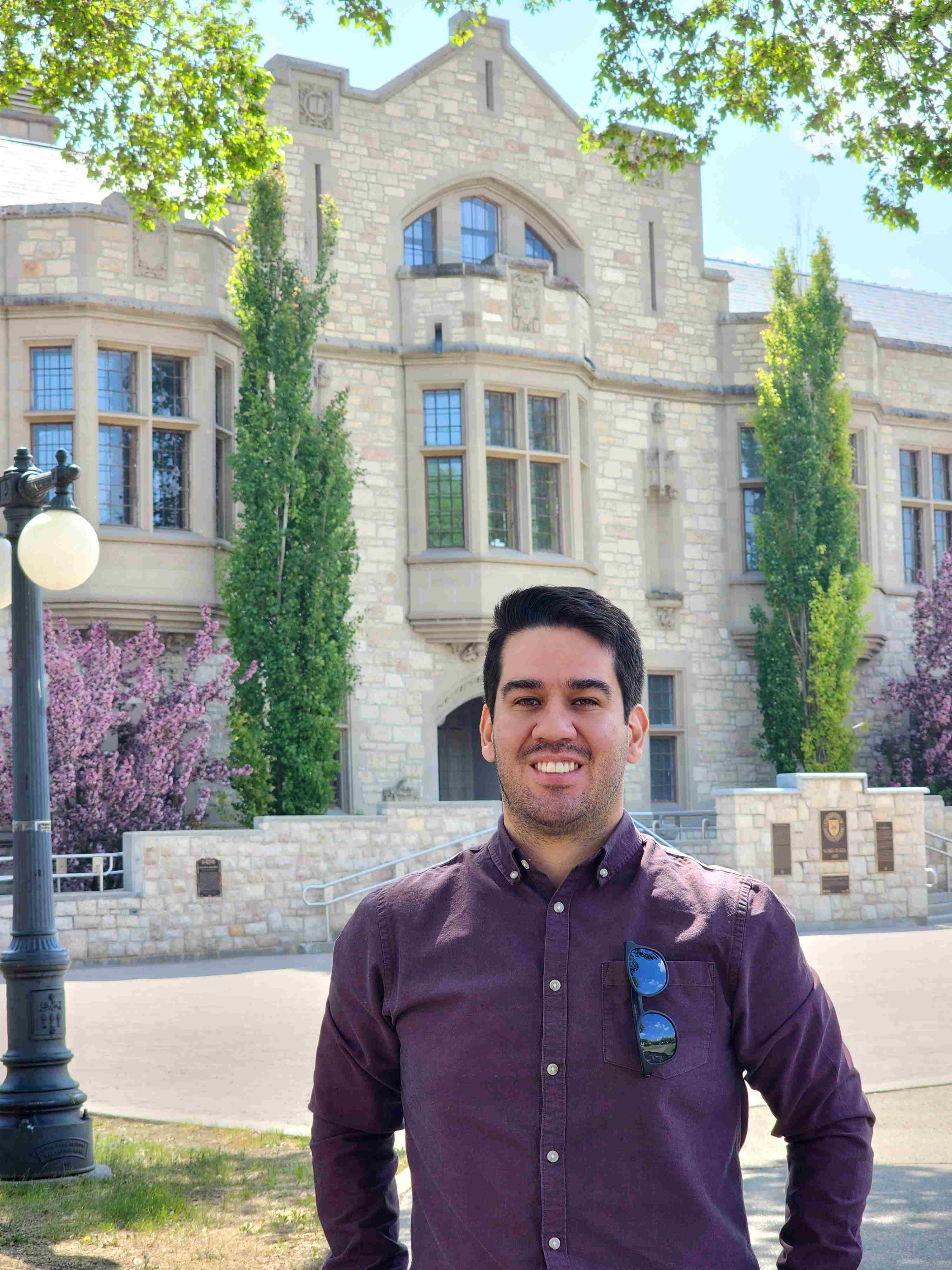
Cuauhtémoc T. Vidrio-Sahagún BSc, PhD
Assistant Professor Civil, Geological, and Environmental Engineering- Address
- Room 2B24, College of Engineering
- 57 Campus Drive
- Saskatoon, SK
- S7N 5A9
Research Area(s)
- Understanding water hydroclimate extremes (droughts, floods, heavy precipitation, storm surges) to inform predictive modelling;
- Developing next-generation prediction of water extremes under uncertainty;
- Assessing the impacts of climate change and Earth system changes on water extremes,
- Delivering actionable predictions to support adaptive water resources management and engineering decisions.
Background - Education and Experience
Dr. Cuauhtémoc T. Vidrio-Sahagún is an Assistant Professor at the University of Saskatchewan. Before joining USask in 2025, he held a Postdoctoral Research Associate position at the University of Calgary (2022–2025), where he also completed his PhD in Civil Engineering with a specialization in Water Resources.
PhD Civil Engineering - Water Resources, University of Calgary, 2022
BSc Civil Engineering, University of Guadalajara, 2017
Research and Interests
Dr. Vidrio-Sahagún’s research focuses on hydroclimate and water extremes—such as floods and droughts—in a changing world and their implications for water security. His lab develops next-generation prediction and modelling approaches to support adaptive water management in complex, evolving natural and built environments. The overarching goal of his research group is to help build resilient communities capable of thriving amid escalating risks due to water extremes.
His research has been published in leading international journals, including Water Resources Research, Journal of Hydrology, Advances in Water Resources, Environmental Modelling & Software, Stochastic Environmental Research and Risk Assessment, and the Canadian Water Resources Journal, among others.
HEWSL – Goals and Contributions
Dr. Vidrio-Sahagún’s Hydroclimate Extremes and Water Security Lab (HEWSL) aims to address key challenges in water security and adaptive management in a meaningful way by filling research gaps, mobilizing knowledge, and translating research into practice. Key goals and contributions include:
- Enhancing projections, predictions, and domain-specific understanding of water extremes by integrating data-driven and process-based models.
- Attributing and understanding the drivers and changes of hydroclimate and water extremes.
- Increasing realism in probabilistic and statistical prediction models to better reflect complex Earth and hydrological systems.
- Improving regional predictions of pluvial, fluvial, and coastal hazards using spatially oriented approaches
- Articulating multi-scale diagnostic and decision-making frameworks to support adaptive water management under uncertainty, competing demands, and system constraints.
In the news
https://www.ucalgary.ca/news/schulich-postdoctoral-associate-receives-engineering-award-mexico

